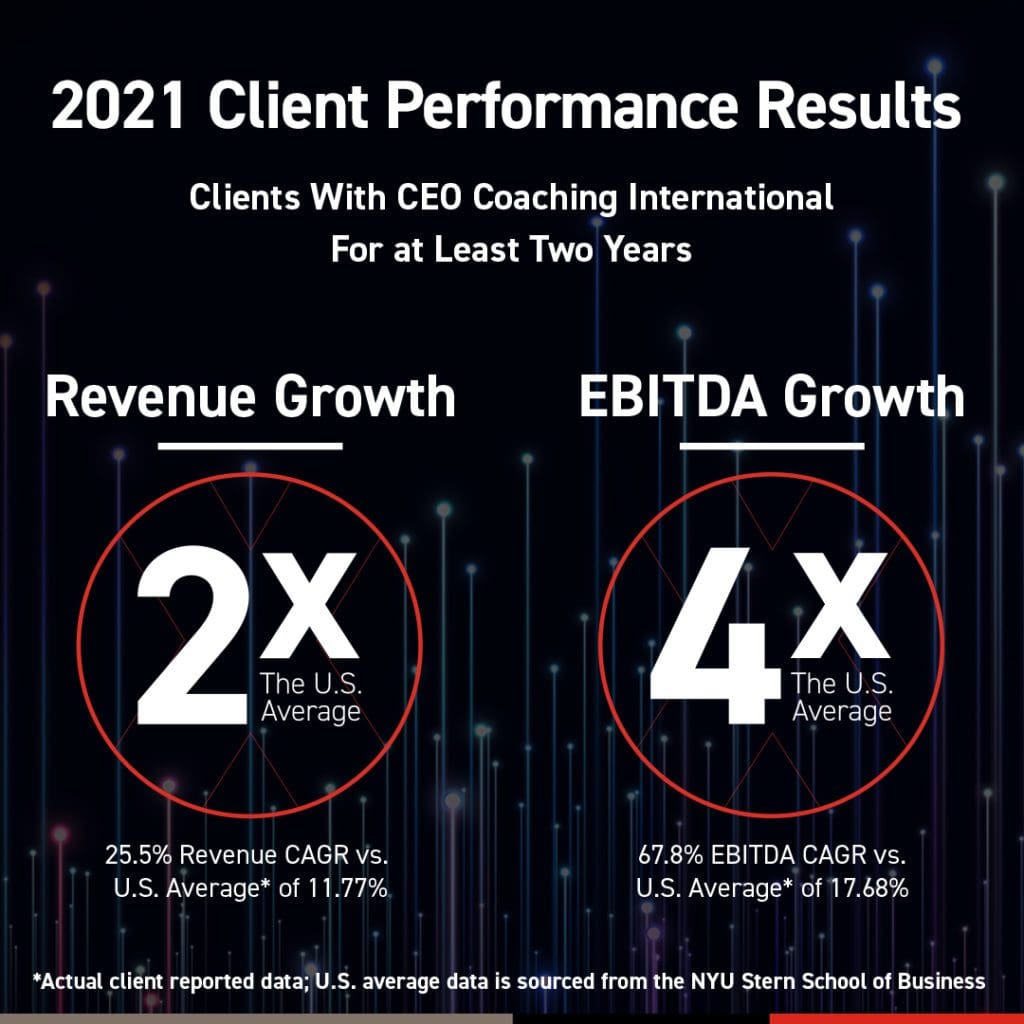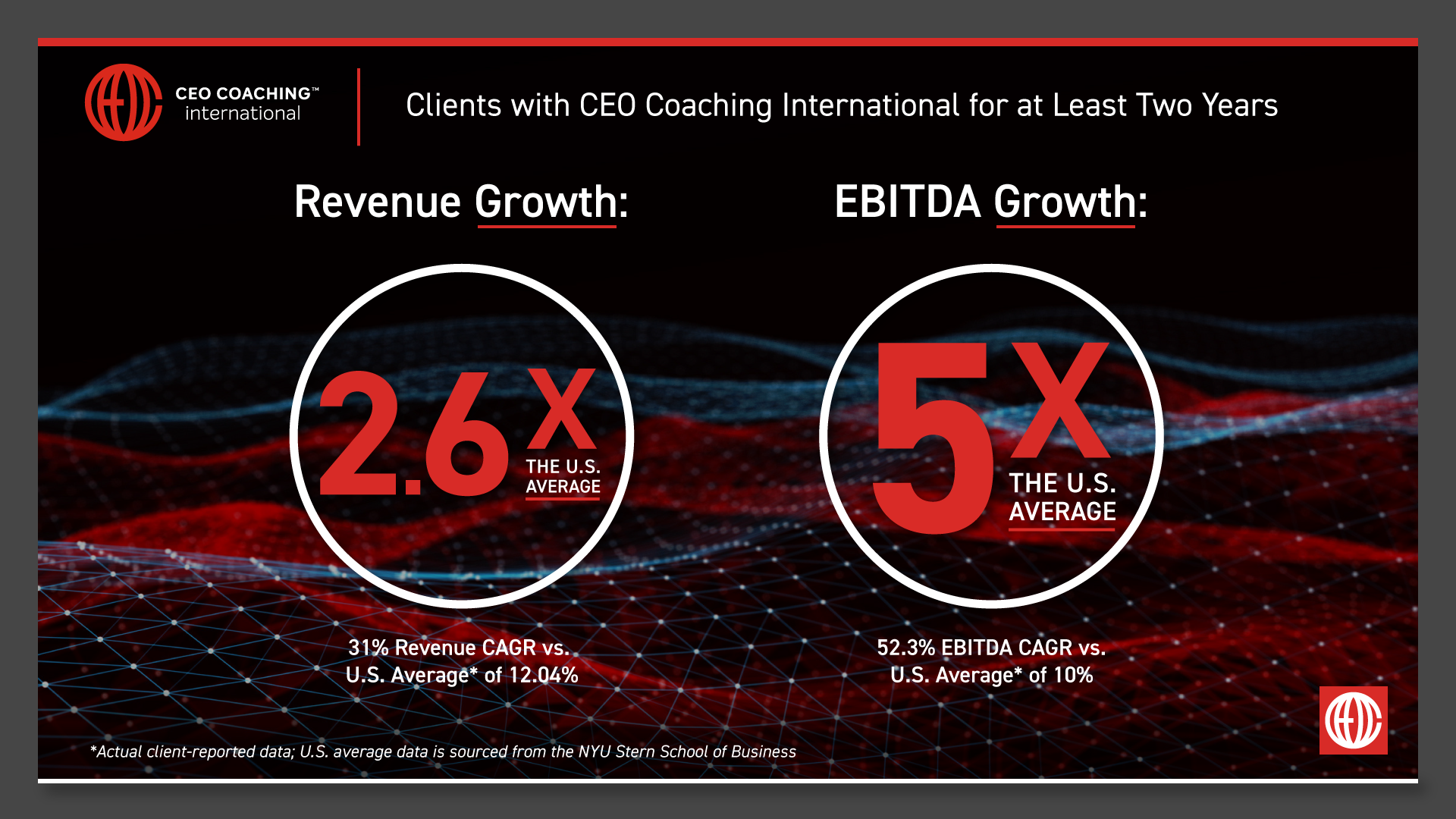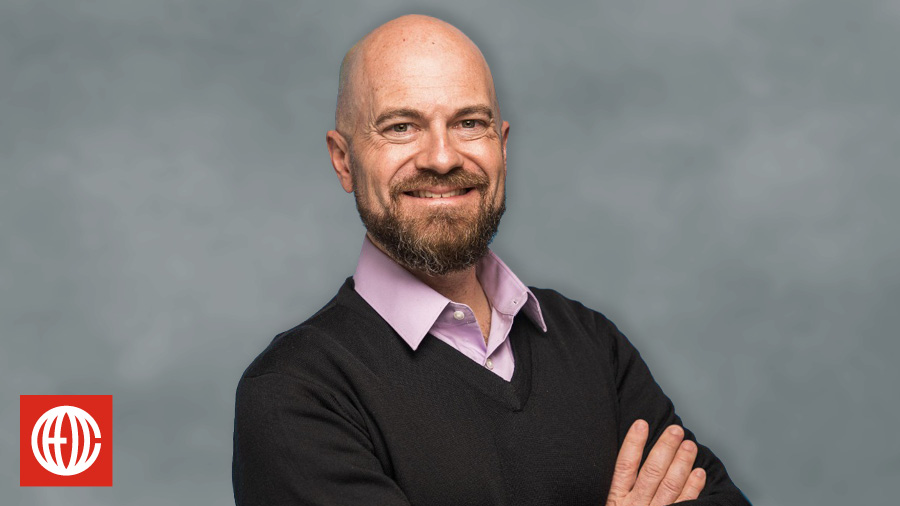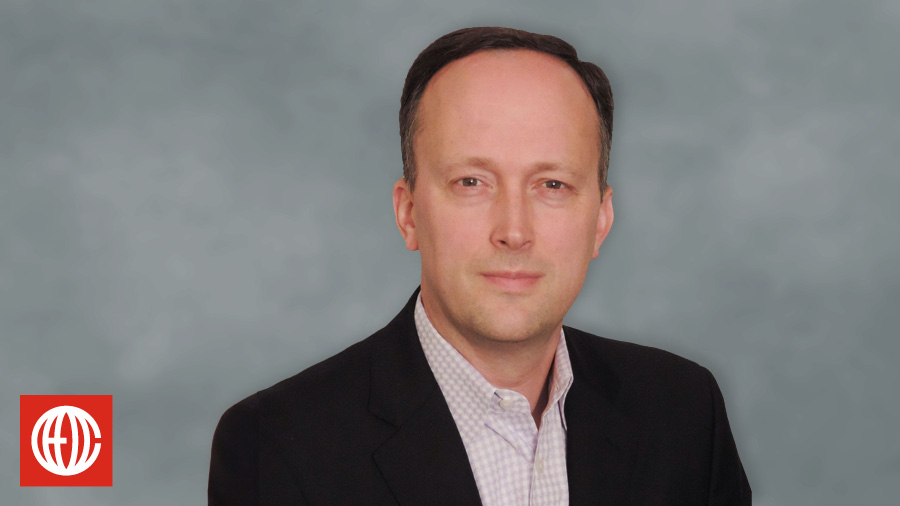
Clients of CEO Coaching International Outperform U.S. EBITDA CAGR Average by Nearly 4X and U.S. Revenue CAGR by More Than 2X
MIAMI, March 31, 2022 –CEO Coaching International, the leading executive coaching firm for growth-focused CEOs and entrepreneurs globally, is pleased to announce its clients’ outstanding 2021 performance results.
Clients working with CEO Coaching International for two years or more have achieved an average EBITDA CAGR of 67.8%, nearly four times the U.S. average, and an average revenue CAGR of 25.5%, more than twice the U.S. average, according to data published in January 2022 by The NYU Stern School of Business.
NYU Stern reports that the national average revenue CAGR for U.S. businesses is 11.77% and the average net income CAGR is 17.68%. The high growth rates of CEO Coaching International’s clients have helped nearly 50 of them achieve successful eight, nine, and ten-figure exits.
“CEO Coaching International helped me grow my company from one hundred million to over two billion dollars in sales. They know how to Make BIG Happen.”
Rich Balot, Executive Chairman at Victra
“I would like to congratulate our clients for maintaining the discipline, business rhythms, strategic planning, and accountability necessary to drive extraordinary growth,” said Mark Moses, CEO and Founding Partner of CEO Coaching International. “These incredible results reported by our clients are a true testament to the impact of working with a world-class coach and implementing our highly effective methodology. It’s our honor to work alongside some of the most talented leaders in the world.”
The world-class coaches at CEO Coaching International are all experienced former CEOs and presidents who have built and run major organizations like Home Depot, Samsung, Procter & Gamble, Goodyear, General Electric, Kendall-Jackson Winery, Tektronix, Telefonica, Xerox, Under Armour, Brookstone, Manulife, and Mercedes-Benz, among others.
This year, Moses and the experts at CEO Coaching International published the Wall Street Journal and Amazon bestseller Making BIG Happen: The Proven Methodology to Drive Extraordinary Growth in Your Business. The book translates the firm’s set of hypergrowth best practices into a system that drives execution on the activities that will lead to BIG growth and success in any business.
For more information about CEO Coaching International’s proven methodology and to schedule a complimentary introduction call with one of our executive coaches, please visit: ceocoachinginternational.com/contact/
About CEO Coaching International
CEO Coaching International works with CEOs and their leadership teams to achieve extraordinary results quarter after quarter, year after year. Known globally for its success in coaching growth-focused entrepreneurs to meaningful exits, CEO Coaching International has coached more than 1,000 CEOs and entrepreneurs in more than 60 countries and 45 industries. The coaches at CEO Coaching International are former CEOs, presidents, or executives who have made BIG happen. The firm’s coaches have led double-digit sales and profit growth in businesses ranging in size from startups to over $10 billion, and many are founders that have led their companies through successful eight, nine, and ten-figure exits. Companies working with CEO Coaching International for two years or more have experienced an average EBITDA CAGR of 53.5% during their time as a client, more than three times the U.S. average, and a revenue CAGR of 26.2%, nearly twice the U.S. average.
Learn more about executive coaching | Meet our world-class coaches





